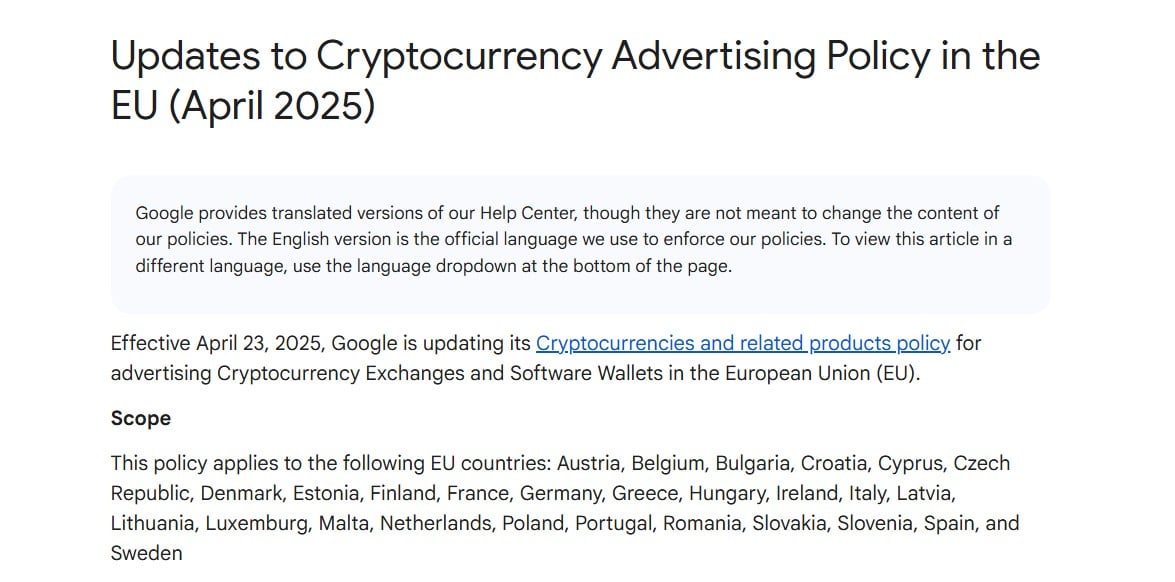Google Tightens Regulations on Cryptocurrency Advertising in the EU: Mandates MiCA Compliance for All Promotions
In a significant move to enhance regulatory compliance, Google has announced stricter policies for cryptocurrency advertisements within the European Union. Effective immediately, only firms holding a valid license under the Markets in Crypto-Assets (MiCA) framework will be permitted to run crypto-related ads on its platforms. This decision aims to curb misleading promotions and ensure consumer protection by aligning with the EU’s evolving digital asset regulations. Industry stakeholders are advised to verify their licensing status to avoid disruptions in their marketing campaigns.
Crypto ads are changing – why it matters
This move marks a major shift toward regulatory uniformity across the bloc, aligning Google’s ad policies with Europe’s sweeping crypto legislation.

Source: Google Support
While the move aims to boost user protection and legitimize crypto services, it also raises the entry barrier for advertisers — especially smaller firms or those operating under older national licenses.
For crypto marketers, compliance has become the price of visibility in one of the world’s most heavily regulated markets.
Who’s affected and what MiCA compliance means
The policy covers all 27 EU member states, including Germany, France, Italy, Spain, and the Netherlands. MiCA is the EU’s first unified crypto regulation, designed to standardize rules across the region.
Advertisers must register as Crypto-Asset Service Providers (CASPs) and comply with local legal requirements. Additionally, they must obtain Google certification to run ads.
This move establishes a global precedent for how tech platforms may enforce crypto advertising regulations.
Transition deadlines, enforcement, and what comes next
Advertisers in Finland, France, and Germany have temporary flexibility, as country-based licenses remain valid during transition periods.
These deadlines are the 30th of June 2025 for Finland, the 30th of June 2026 for France, and the 30th of December 2025 for Germany. After these dates, MiCA licenses will become mandatory.
Non-compliant advertisers won’t face immediate suspension. However, Google will issue at least a 7-day warning before taking enforcement actions.
For firms relying on transitional provisions, time is running out. More broadly, Google’s alignment with MiCA may set a precedent for other tech platforms and regions, leading to stricter global ad regulations.
Take a Survey: Chance to Win $500 USDT

